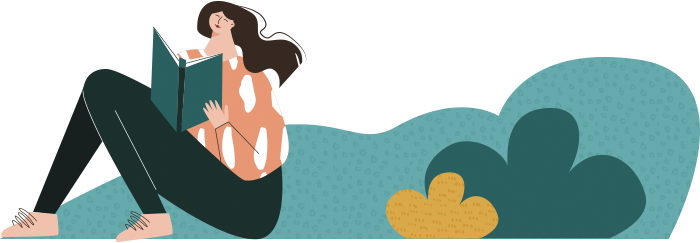It’s a common observation — in therapy, in the workplace, and among friends: people often say, “I’m like this because of society,” or, “Society made me this way.” There’s truth in this. From childhood, we are shaped by social norms, expectations, and pressures. Yet, as adults, leaning too heavily on this explanation can unintentionally keep us stuck.
It’s important to start with empathy. Feeling overwhelmed by societal expectations, unfair treatment, or systemic pressures can be paralysing. The emotions in these moments — frustration, guilt, shame, or helplessness — are real and valid. Sometimes simply grounding yourself can help you regain perspective and feel more in control (see our post on grounding techniques).
In this blog, we’ll explore the tension between recognising societal influence and taking personal responsibility, drawing on Transactional Analysis (TA) to understand the dynamics at play.
Society Shapes Us — But How Much?
From the moment we are born, society places expectations on us — cultural norms, gender roles, workplace rules, and family expectations. These pressures influence:
- Behaviour and communication: How we express ourselves or assert boundaries.
- Beliefs and values: What we consider acceptable or “normal.”
- Life choices: Career paths, education, relationships, and hobbies.
Acknowledging these influences is important. It helps explain why certain patterns exist and why situations can feel overwhelming. The risk comes when we stop there, using societal influence as a reason to avoid taking action in areas where we do have control.
Blame and the Child Ego State
From a Transactional Analysis perspective, repeatedly blaming society can signal that we’re operating from our Child ego state:
- The Adapted Child may feel powerless, paralysed, or anxious in the face of societal pressures.
- The Free Child may respond with frustration, rebellion, or avoidance.
When we externalise blame — “It’s society’s fault I behave this way” — we may inadvertently:
- Evade responsibility for choices that are within our control.
- Reinforce patterns learned in childhood.
- Maintain feelings of helplessness or emotional turmoil.
Example: A colleague avoids giving feedback to a team member, saying the corporate culture discourages open communication. While the culture has an impact, the Adult ego state can still assess options — such as choosing a safe way to communicate — even in difficult circumstances.
In these moments, recognising the emotional overwhelm is crucial. Feeling paralysed, frustrated, or anxious is natural. Simple grounding practices — like mindful breathing or noticing your surroundings — can help you return to the present and regain some agency.
The Role of the Parent Ego State
The Parent ego state also shapes how we experience blame:
- Critical Parent: Internalises judgment and societal expectations.
- Nurturing Parent: Offers compassion and support, helping us navigate pressures with care.
Blame often mixes the Child and Critical Parent, creating loops of frustration and powerlessness. Understanding this helps us step back with empathy — recognising why the emotion feels so strong and validating it, rather than pushing it aside or feeling guilty for having it.
Example — feeling told off by society: You feel criticised for not following career norms. Internally, the Critical Parent says, “You should conform,” while the Adapted Child feels paralysed or anxious. By noticing this dynamic, you can pause, breathe, and re-engage from your Adult perspective.
Adult Ego State: Awareness and Choice
The Adult ego state is rational, reflective, and grounded in the present. It allows us to:
- Recognise societal pressures without being overwhelmed by them.
- Assess which aspects of a situation are within your control.
- Take conscious, deliberate action rather than reactively blaming external factors.
Example: You grew up in a culture that discouraged open emotional expression. That societal influence shaped your comfort with vulnerability. Yet your Adult ego state can now choose to practise openness in friendships or therapy, gradually changing how you respond in emotionally charged situations.
Grounding here is important: noticing your body, breathing, and surroundings can reduce the paralysing impact of these feelings and help you respond thoughtfully.
Balancing Truth and Responsibility
Societal influence is real — acknowledging it doesn’t diminish your experiences. But adults benefit from balancing this awareness with personal responsibility. Key strategies include:
- Observe your reactions: Notice when blaming society comes up. Which ego state is active? Child? Critical Parent? Adult?
- Validate your feelings: Feeling overwhelmed or frustrated is natural. Pause, breathe, and allow space for these emotions.
- Engage your Adult: Identify what is within your control and consider possible responses.
- Use self-compassion: Nurture yourself, recognising the challenges you face while encouraging proactive action.
Example — family dynamics: A parent feels frustrated by a teenager’s behaviour and attributes it to peer culture or social media. By recognising the emotional intensity and pausing to ground themselves, they can respond from the Adult ego state rather than reacting from frustration or blame.
TA, Blame, and Growth
Transactional Analysis offers a clear lens for understanding blame:
- Parent: Identify internalised rules and judgements.
- Child: Notice feelings of helplessness, anxiety, or overwhelm.
- Adult: Assess reality and take deliberate action.
By recognising these states, we can respond rather than react, reducing the power of societal pressures and emotional loops. For readers interested in learning more about Parent, Adult, and Child dynamics, see our full blog on Transactional Analysis.
Practical Takeaways
- Recognise societal influence without surrendering agency.
- Notice emotional overwhelm: it’s valid, normal, and grounding can help.
- Engage your Adult ego state to make informed choices.
- Pause and breathe before reacting — grounding techniques are invaluable in these moments.
- Respond from clarity, not impulse: even when society feels overwhelming, small deliberate steps matter.
Looking Ahead
Future blogs will explore parts theory and other frameworks that examine the nuanced “parts” of ourselves, offering further insight into patterns of blame and personal responsibility. For now, TA provides a practical framework for recognising emotional patterns, societal pressures, and where your Adult ego state can take the lead.
Thanks all
Ed
(Hammock co-founder & private practice therapist)


